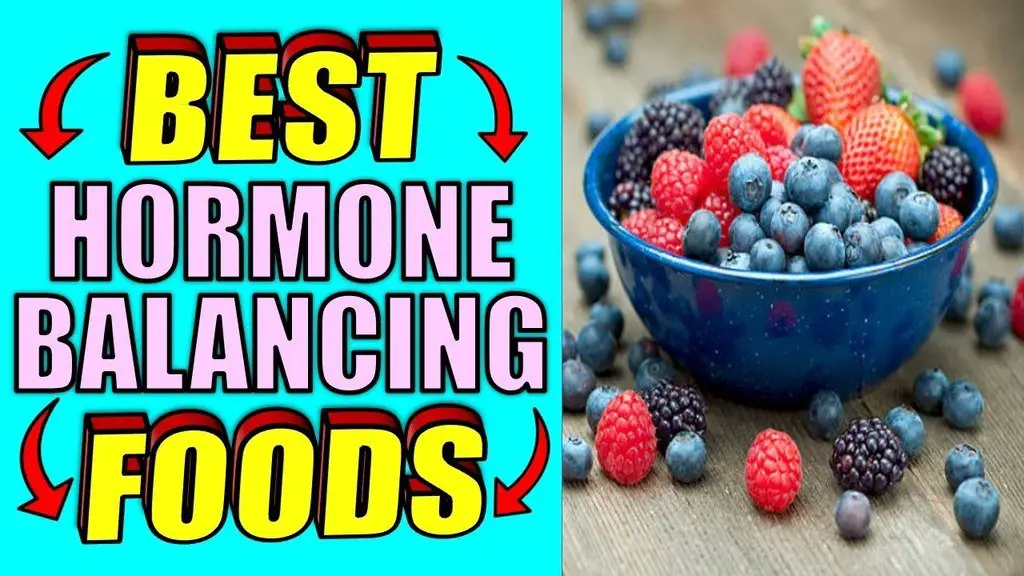Hormones can cause issues for many women, especially those who are entering perimenopause. All sorts of frustrating fluctuations can occur, which have the power to impact nearly every aspect of a woman’s life.
When our hormones are imbalanced, we might experience major mood swings and irritability. We might also have trouble sleeping, and experience a decrease in sex drive. We might gain weight, and lose our energy and zest for life. As a result, our relationships may suffer, and we may feel as if our quality of life has suddenly dropped dramatically as well.
Fortunately, there are all sorts of tried and true ways to help balance hormones. One of the simplest ways is to ensure you’re getting all the right hormone-balancing nutrients from your diet. Supplementing with certain vitamins and supplements may help as well.
Stay tuned to learn the top best female hormone balancing foods.
FOR SEX HORMONES
Our sex hormones manage our reproduction, the development of sex characteristics, and sexual motivation. Some of the main hormones are oestrogen, progesterone, and testosterone.
Our sex hormone levels can change naturally during different stages of life, including puberty or menopause, but they can also be thrown out of balance by diet, lifestyle, and our exposure to toxins.
BEST SEX HORMONE BALANCING FOODS
1. Flax Seeds
Flax seeds are rich in anti-inflammatory omega-3 fats and contain phytoestrogens, which are plant-based compounds that mimic oestrogen, bind to our oestrogen receptors, and help us get rid of excess oestrogen from the body. They can also help improve or prevent additional hormone-related issues including breast cancer, menopausal symptoms, and osteoporosis.
2. Wild Salmon
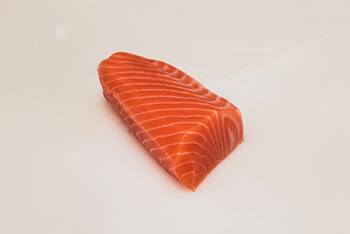
Salmon is an excellent source of Vitamin D, a fat-soluble vitamin that helps us make our sex hormones and boost testosterone levels. Vitamin D is important for bone health and immunity, too. Salmon is also high in omega-3 fatty acids, which have been shown to reduce our risk of breast cancer and prostate cancer.
3. Organic Tempeh
Soy is a controversial topic for many reasons, including genetic modification and allergies. But when you choose good sources like organic miso and tempeh you can garner the positive benefits of soy’s isoflavones, which have phytoestrogenic properties and can reduce the risk of breast cancer.
The source of soy is definitely important – and a fermented choice like tempeh or miso will bring you the beneficial probiotics that improve digestion and mood. Having a balanced digestive flora also reduces the activity of an enzyme called beta-glucaronidase, which is linked to oestrogen-related cancers.
4. Broccoli
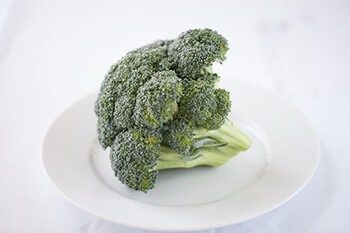
Love it or hate it, broccoli is up there with the top foods for balancing sex hormones. It’s a member of the cruciferous family of vegetables, which also includes cauliflower, kale, cabbage, and Brussels sprouts. Crucifers are rich in glucosinolates, which are sulphur compounds that help to neutralize and eliminate cancer-causing carcinogens.
5. Lentils
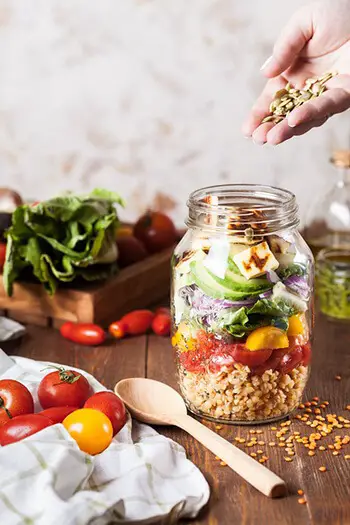
Lentils are one of the cheapest and most nutritious foods out there, and it turns out that they’re also great for preventing PMS symptoms from occurring. Pulses such as lentils contain a high amount of vitamin B6, which is a co-factor in the production of serotonin, a hormone involved in mood and appetite regulation.
Lentils are also a good source of iron, which is linked with a lowered risk of developing PMS because of its theorized effect on serotonin and GABA in the brain.
6. Sunflower Seeds

Sunflower seeds are high in Vitamin E, an antioxidant that’s important in oestrogen production and may reduce breast cancer risk, as well as naturally boost progesterone. They also pack a ton of nutritional benefits that should help you alleviate PMS symptoms.
They’re rich in vitamin E, B-vitamins, copper, selenium, and magnesium – and a high intake of these micronutrients have been linked with a decreased risk of experiencing PMS. This is likely due to their effect on the production of neurotransmitters such as serotonin and GABA involved in our hormonal cycles.
7. Sweet Potatoes
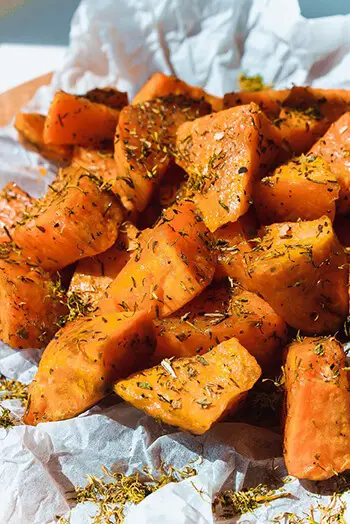
Love sweet potatoes already? Now you have another reason – they’re high in Vitamin B6, a vitamin that helps with liver detoxification.
Other foods rich in Vitamin B 6 include spinach, turkey, and chicken. Any food that assists with liver detoxification is going to also help rid us of any excess hormones.
8. Berries
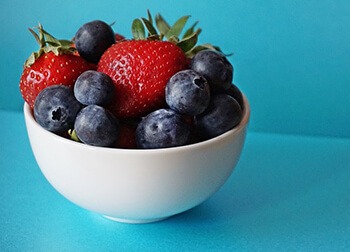
Next time your PMS has you reaching for a sweet treat, choosing berries instead of your usual pint of ice cream could make all the difference. Not only are berries packed with antioxidants that benefit your brain and immune system, they’re a powerful ally to combat the symptoms of PMS because they help our bodies get rid of excess harmful oestrogen.
As a bonus, the phytochemicals contained in berries such as quercetin, ellagic acid, resveratrol also protect you against oestrogen-induced breast cancer because of their ability to balance hormones.
9. Portobello Mushrooms
Did you know that portobello mushrooms are one of the only plant foods that contain a significant amount of vitamin D? For this reason, it’s a good idea to include them in your diet if you’re looking to balance your sex hormones.
Vitamin D along with calcium has been found to play an important role in reducing PMS symptoms because of their involvement in optimal hormonal processes in our bodies. Aside from stimulating the production of serotonin, which plays a role in keeping our hormones balanced, consuming vitamin D is also protective against osteoporosis and certain forms of cancers.

FOR THYROID HORMONES
Thyroid hormones are responsible for our energy and metabolism. They include T3, T4, and calcitonin. TSH, which is produced in the pituitary, helps to regulate the thyroid.
Iodine deficiency, an inability to produce the proper amount of thyroid hormones, autoimmunity when the body attacks thyroid tissue, and abnormal growth in the thyroid can all cause our thyroid hormones to get out of whack.
BEST THYROID HORMONE BALANCING FOODS
1. Seaweed
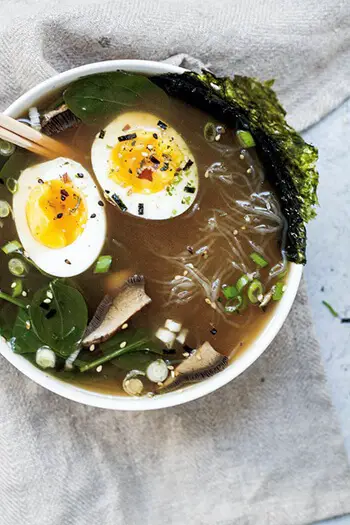
Sea vegetables, including nori, wakame, dulse, arame, kombu, and hikiji, are amazing sources of iodine, an important mineral that helps us manufacture our thyroid hormones. Keep in mind, though, that too much seaweed can lead to an over-production of iodine, which is actually bad for the thyroid. Ironic, right?
2. Brazil Nuts
Brazil nuts are packed with selenium, an antioxidant that protects the thyroid gland and helps the body convert T4 into T3, the active form of the thyroid hormone. Having just a couple of Brazil nuts each day is enough to meet your selenium needs – and they taste delicious, so this is very easy to do!
3. Sardines
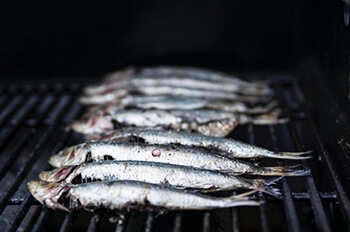
People with an underactive thyroid tend to have low levels of B12, and sardines are a great source of this important nutrient. Sardines also contain a good amount of selenium and a small quantity of iodine, so they are an overall thyroid-supportive food.
4. Spinach
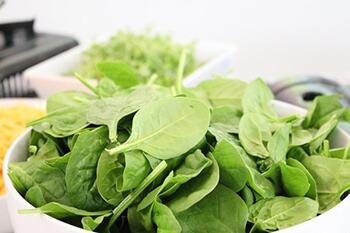
Iron-rich foods like spinach help to enhance thyroid function and aid the production of thyroid hormones. Spinach’s iron content, as well as the range of B vitamins, can also offer an energy boost to anyone who is feeling sluggish and tired.
5. Quinoa
Quinoa is definitely a superfood, thanks to its broad spectrum of minerals, protein, and fibre. A slow thyroid can also slow down digestion, leading to constipation.
Quinoa’s high fibre content can get the bowels moving, and it’s a good source of zinc, another mineral that assists us with thyroid hormone production.
FOR ADRENAL HORMONES
The adrenal glands sit just above the kidneys. They’re responsible for helping us manage stress, regulate our blood sugar and blood pressure, and help us produce sex hormones. Adrenal hormones include cortisol, adrenaline, DHEA, aldosterone, and norepinephrine.
Chronic physical and emotional stress, lack of sleep, and poor diet, including excessive sugar, which sets off blood sugar imbalance, all lead to our adrenal hormones getting out of whack.
BEST ADRENAL HORMONE BALANCING FOODS
1. Bell Peppers

Sweet bell peppers give us a boost of vitamin C, an antioxidant vitamin that is essential to the function of the adrenal glands. We store a load of vitamin C in our adrenals, and when we’re stressed, we use up a lot of it.
Vtamin C-rich foods like bell peppers offer us replenishment, along with a spate of B vitamins that will offer us energy and help us reduce stress levels.
2. Kale
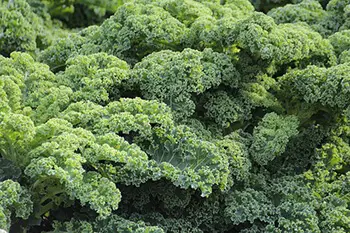
Dark leafy greens like kale provide a wide spectrum of nutrients, in particular, the antioxidant vitamins K, A, and C. Similar to bell peppers, kale’s vitamin C helps shore up our adrenals and its B vitamins can nourish our nervous systems. These antioxidants also help to combat the damage caused by stress.
3. Avocado
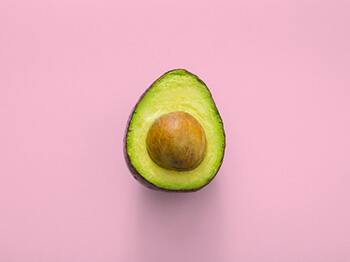
Blood sugar imbalances can disrupt our adrenal hormones. Sugary foods in particular will negatively affect our blood sugar levels.
4. Pumpkin Seeds
Pumpkin seeds are a source of magnesium. When we find ourselves stressed, we can deplete our magnesium levels.
Magnesium is our anti-stress mineral that works alongside vitamin C and vitamin B5 to support the adrenal glands and lower stress levels. In short, magnesium-rich foods like pumpkin seeds can help us relax – so if the stress is piling up, you know what to do!
5. Eggs
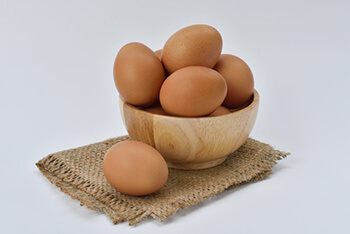
Reach for eggs to give yourself a dose of choline, a vitamin that helps us produce the neurotransmitter acetylcholine, which is essential to the nervous system, brain health, memory and development. They also contain omega 3 fatty acids, the anti-inflammatory fats that support the brain.
When our minds and nervous systems are healthy, we’re better able to cope with stress. Aim to buy organic, pasture-raised eggs for the biggest hormone-balancing benefits.
6. Millet
Many of us haven’t heard of millet, a gluten-free whole grain that’s used in some porridge dishes and savoury pilaf. It’s worth knowing about, though, as it contains a wide spectrum of B vitamins that can support our nerves and brains in times of stress. It also contains magnesium and fibre, which contributes to balanced blood sugar.
7. Sea Salt

Aldosterone, one of our adrenal hormones, is responsible for fluid balance and blood pressure. If our adrenals aren’t functioning well and our aldosterone levels fall, we may end up secreting more sodium, leading to salt cravings.
A good dash of sea salt to your food or even a glass of water will help to replenish sodium levels and offer trace minerals. You can also try seaweed or miso for their salt content.
Conclusion
Our hormones are a complicated business, and it’s important to work with a qualified health practitioner to ensure you’re able to properly correct any imbalances. Once you know which hormones are out of whack, you can use hormone-balancing foods to bring your health into harmony. And the best news? All of these foods are super-healthy and delicious!

